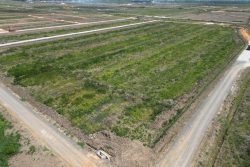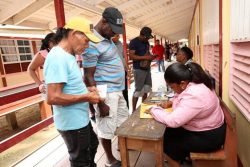Neighbouring countries are reportedly monitoring closely, what may be drifting towards an out-of-control situation in Brazil, by far South America’s single biggest country, as its COVID-19 infections and deaths continue to rise inexorably.
On the back of an announcement that the country had just recently exceeded 2,000 COVID-19 related deaths in a single day and question marks over the decisions being made by the country’s President Jair Bolsonaro, fears are being expressed that the situation in Brazil could have implications for the rest of the world as far as the worsening of the global pandemic is concerned.
Brazil now reportedly has the second largest COVID-19 death toll in the world, behind the US, with total deaths attributed to the virus amounting to 270,656. On Wednesday of last week the country reportedly recorded 79,876 new cases, the third highest number in a single day.
All of this is happening against the backdrop of sustained political criticism of Bolsonaro’s handling of the crisis. Just recently the country’s former president, Luis Ignacio Lula da Silva, vocally criticized what he said were Bolsonaro’s “stupid” decisions, a comment that had been preceded by a remark by a State Governor to the effect that the President was a “crazy guy.”
Bolsonaro has reportedly repeatedly expressed sentiments to the effect that the scale of the pandemic was being exaggerated and has now become saddled with his refrain that people “stop whining.”
The numbers, however, tell the real story. Brazil has reportedly chalked up a COVID-19 related death rate of 128 per 1000 persons, the eleventh highest amongst 20 of the world’s worst affected countries. The highest rates are reportedly in the Czech Republic with 208 deaths per 100,000 people, and the UK with 188 deaths per 100,000 people, according to figures sourced to Johns Hopkins University.
Reports in the international media suggest that across the vast country, intensive care units at hospitals are now at more than 80% capacity. In fifteen state capitals, including Rio de Janeiro and Sao Paulo, that rate is reportedly in excess of 90%.
Popular protest has pointed fingers at the government over what Brazilians say has been its failure to act expeditiously and there is talk of a likely overload and even a collapse of the country’s health system. The country’s epidemiology experts are asserting that unless urgent action is taken to vaccinate the entire population the country could be on the cusp of a massive tragedy.
Experts have placed the blame on what they say has been the delinquency of the authorities insofar as the putting in place of the requisite protocols are concerned. Reports from Brazil suggest that in Sao Paulo, while, in recent weeks non-essential shops have been closed, there has been no strict lockdown and many schools have remained largely open. Such restrictions as are in place are reportedly largely the result of self-imposed strictures by individuals and families.
The general posture of the Brazilian authorities in the face of the worsening pandemic is reportedly driven by what is said to be a Bolsonaro narrative that articulates a mistrust of the Chinese vaccine, a pushback against the closure of restaurants and other businesses, a ‘doctrine’ which reportedly runs counter to the expert refrain which is increasingly calling for more focussed and robust national leadership to take measures to prevent the collapse of the health system.
With Brazil sharing mostly open borders with the rest of the continent, there are fears from neighbouring countries of possible infection through migration. Almost a year ago, on March 19, 2020, Brazil disclosed that it was closing its borders with Argentina, The country’s border with Venezuela had been closed a few days earlier. Late in January, the government of Guyana suspended flights to Brazil having earlier closed the land crossing facilitated by the Takutu Bridge.
At the time of the suspension of flights, Guyana’s Health Minister Dr Frank Anthony had said that the decision on the suspension of flights to and from Brazil had been taken as a measure to guard against the spread of the new highly transmissible COVID-19 variant which has been recorded in Brazil.








